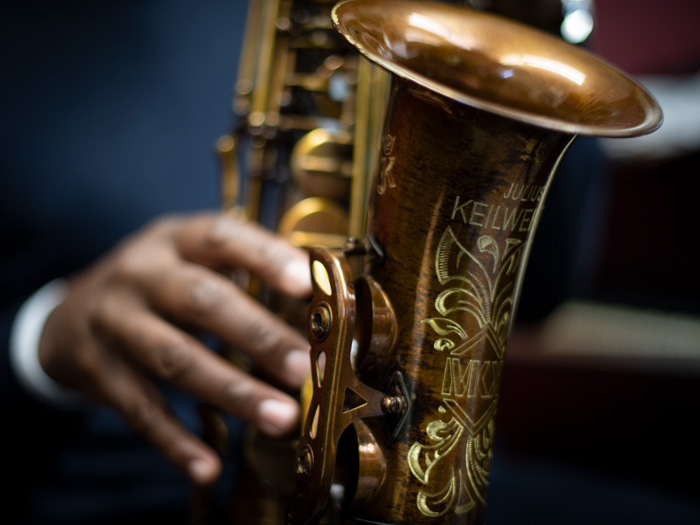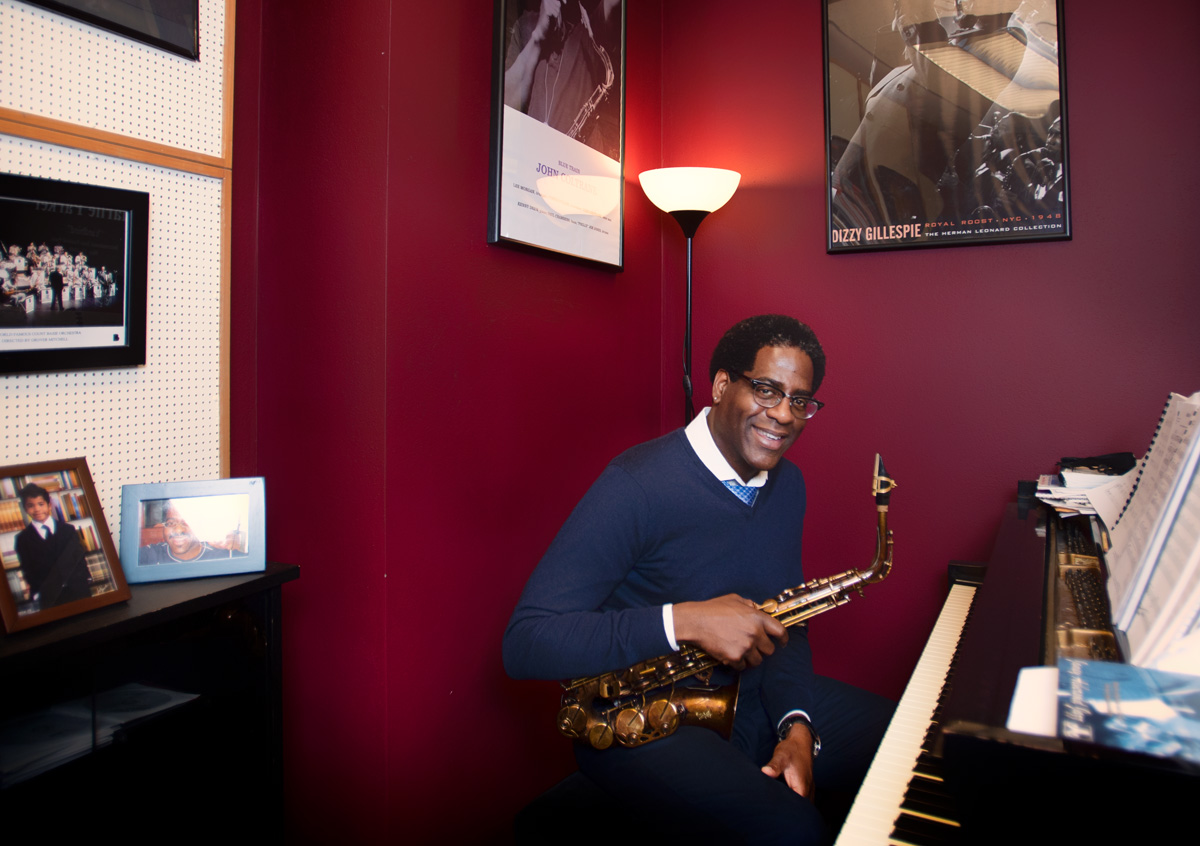“I’m gonna do something real quick.”
Brad Leali (’89) rises from his seat and bolts to the piano in the corner of his office, which like the saxophone he clutched just a few moments before, appears to be an instrument that rarely sees rest. In a space where the walls are packed with posters of jazz greats and concert dates, music reverberates from every corner, even in the silence.
Outside, a lawnmower whirs monotonously, but the sound is swiftly, and mercifully, overtaken by Leali’s playing as his fingers dance across the keys. The tune is not immediately identifiable, but the rhythmic allure is undeniable. A couple of dragonflies visible through the window almost seem to dart and dive to the melody.
Leali looks up, gestures to the piano. “Tell me what that was, what chords did I just play?” He stands and heads back to his seat. “You have no idea, and you don’t care, right? You don’t need to analyze it, you just want to experience it. It’s all about how it makes you feel.”
It’s somehow a simultaneously jarring and completely appropriate sentiment coming from the professor of jazz saxophone in UNT’s world-renowned College of Music. As a student, he was a member of UNT’s Grammy Award-nominated One O’Clock Lab Band, the university’s Mount Everest of performance ensembles. Just a few weeks after graduation, he landed a coveted spot in Harry Connick Jr.’s band, eventually soloing on Connick’s Blue Light, Red Light album. He’s toured with the Count Basie Orchestra and Lyle Lovett. He has a master’s in music from Rutgers, and a scholarship named for him at Texas Tech, where he served as director of jazz studies until 2008.
So yes, Leali is a master musician who can easily differentiate between G, B, B flat, F. But at heart, he’s a kid who grew up soaking in his parents’ faves: John Coltrane, Cannonball Adderley, Charlie Parker, Nancy Wilson, James Brown, Stevie Wonder, Marvin Gaye. He’s the congregant who sat wide-eyed as his church’s gospel choir belted out hymns powered solely by raw talent and spiritual force, a recollection that to this day gives him chills.
He’s the guy who knows that true music appreciation runs soul-deep.
“In church, when they’d get on that instrument and do what they do, they would just tear you apart with their message,” says Leali, who grew up in Denver. “Once they started singing, it would be like a different world. Everyone would be transformed. Jazz stems from gospel — this is our foundation. We can only take music forward if we know where we came from. That’s why I’ve always been intrigued by bringing those two parts together.”
So in 2006, Leali did exactly that. He was impressed by the choir at the Lubbock-based church he attended, and thought, “What if I put them with my band at Tech?” The concert that resulted doubled as a Black History Month celebration, where slides of African American artists, educators and thinkers were projected as the intermingling of voices and instruments thrummed in the air.
“I thought it would just be a one-time thing,” Leali says. “But the audience loved it, and I loved it too.”
Now “Gospel Meets Jazz” — the name Leali assigned to the annual celebration — is entering its 14th year, and its 11th hosted at UNT.
“You know, music has always been about a community of people, not just academics,” says Leali, who this spring won the UNT Foundation Community Engagement Award for his commitment to raising awareness of the influence of gospel and jazz, and celebrating the UNT community’s diversity, through the Gospel Meets Jazz event. “In gospel, the message is about coming together, let’s just be good to each other. It’s a message of inclusion.”

